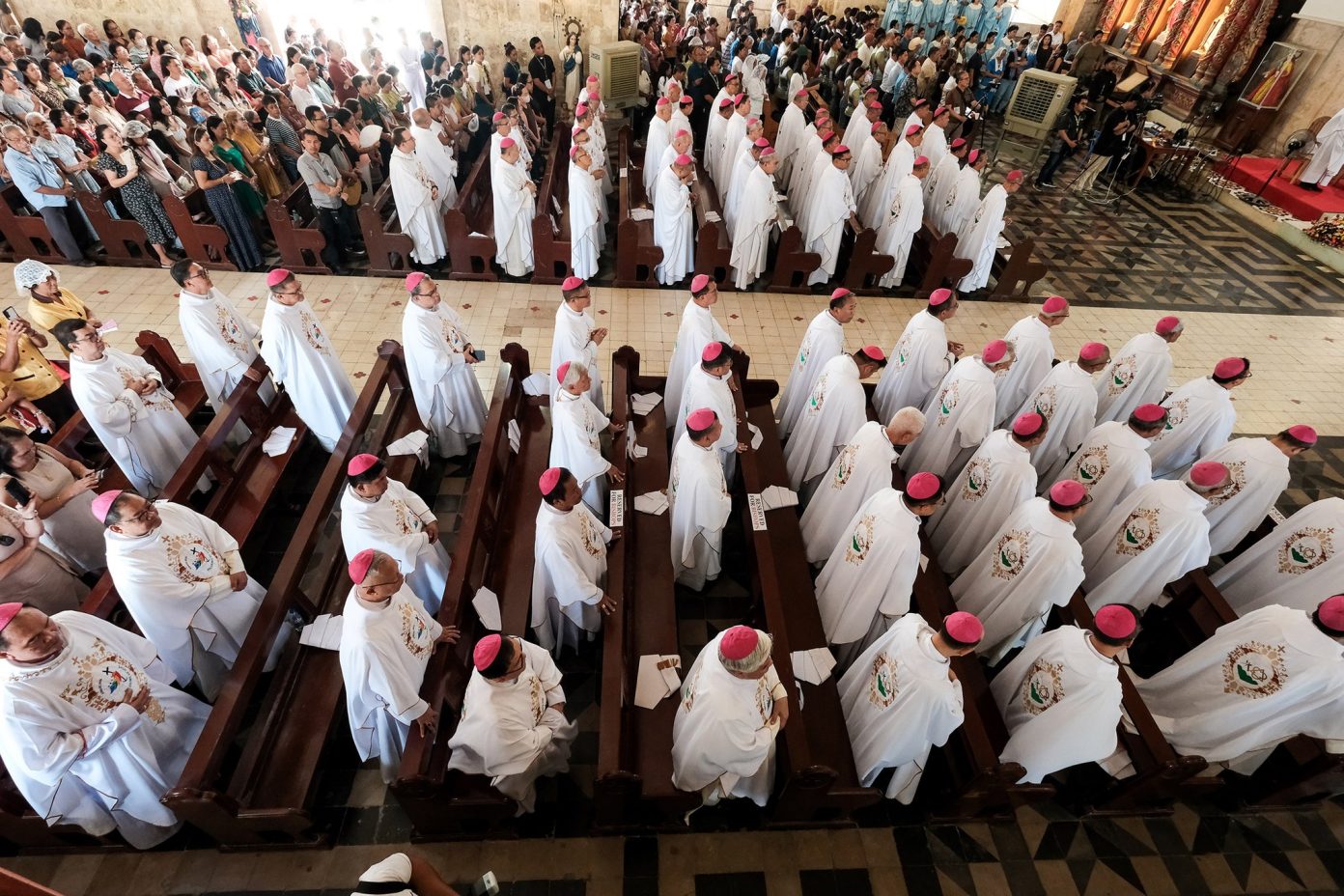The Catholic Bishops’ Conference of the Philippines (CBCP) has raised alarm over the rise of online gambling, calling it a “new plague or virus” that is silently destroying individuals, families, and society.
“We are deeply concerned because it seems there is a new plague or virus destroying individuals, families, and society. This plague is the addiction to online gambling,” the bishops said in a pastoral letter signed by CBCP President, Cardinal Pablo Virgilio S. David of Kalookan.
The prelates noted that despite previous action against POGOs and e-sabong, online gambling has re-emerged in digital form—easily accessible, widely promoted, and increasingly addictive. They warned that it now ensnares even the youth, often without families realizing it.
Invoking Luke 4:18, the bishops emphasized that Christ came “to bring good news to the poor” and “to set the oppressed free”—a call they said obliges the Church to speak against structures of modern enslavement.
Moral crisis disguised as leisure
The letter described online gambling as a moral crisis, not just a recreational activity. Though some may claim it as a “human right,” the bishops argued that this does not make it right—especially when it causes harm.
They warned that online platforms are deliberately engineered to be enticing, using celebrity endorsements and colorful ads to lure people in. The platforms’ 24/7 accessibility and seamless integration with financial apps make them especially dangerous, often leading users to financial ruin in a single click. Over time, gambling dulls a person’s moral compass, normalizing destructive behavior.
Citing the Catechism of the Catholic Church, the bishops reminded the faithful that gambling is morally unacceptable when it deprives people of what is necessary for their well-being and that of their families (CCC #2413).
Indifference from institutions
The bishops criticized the widespread silence surrounding the issue, asking why media, government, and the business sector seem disengaged. They pointed to the profits generated by gambling as a possible reason for this indifference, and lamented that even families and Church communities often fail to confront the problem.
The letter included testimonies from those affected by addiction—stories of lost salaries, broken families, untreated illness, and children unknowingly caught in the cycle. One parent, they said, only discovered their child was addicted after noticing changes in behavior. The psychological toll was also highlighted, with some noting impacts on mental health.
The bishops likened the gambling crisis to drug addiction, stressing that it affects not only individuals but entire households, especially among the poor, families of overseas workers, and struggling students.
National wake-up call
Calling online gambling a “virus that destroys and kills,” the CBCP challenged the nation to ask whether the normalization of such behavior is compatible with national development. They questioned whether society is fostering a “culture of resilience or a culture of gambling,” and warned that exploiting others’ weaknesses for profit is a grave moral offense.
The bishops labeled the increasing acceptance of gambling—especially among the youth and poor—as a “grave scandal.”
Calls for concrete action
The pastoral letter laid out several urgent appeals:
- To the public: Recognize gambling addiction as a public health issue requiring education, policy, and rehabilitation.
- To government and regulators: Impose tighter controls on digital payment systems that allow easy access to gambling platforms.
- To media and advertisers: Stop romanticizing gambling and instead highlight its destructive consequences.
- To PAGCOR and agencies: Place public welfare above gambling revenues.
- To parishes: Actively support individuals and families affected by gambling and avoid remaining passive.
- To lawmakers and LGUs: Prioritize the common good when granting permits or crafting gambling-related legislation.
- To all: Uphold human dignity and protect family relationships.
The bishops urged citizens to reflect on the deeper cost of widespread gambling, citing Matthew 16:26: “For what will it profit a man if he gains the whole world but loses his soul?”
They clarified that the Church is not against enjoyment but must speak out when entertainment leads to destruction and enslavement.
Message of hope
Addressing those suffering from addiction, the bishops emphasized they are not alone. They described gambling addiction as often rooted in unresolved emotional wounds rather than simply a lack of willpower.
They likened it to drug dependency—an issue that requires compassion, support, and healing rather than judgment. Gambling, they said, distorts thinking, impairs judgment, and robs peace of mind.
The bishops called on all to reclaim “true freedom in the Gospel—not the freedom to do whatever we want, but freedom from enslavement.” They cited John 8:36: “If the Son sets you free, you will be truly free.”
As the Church observes the Jubilee Year of Hope, the bishops called for national resistance to the spread of online gambling and encouraged communities to accompany victims toward recovery and dignity.
“May we once again hear in our churches, families, and society the message of freedom brought by Christ,” they wrote. “And let us no longer call ‘entertainment’ the things that God considers ‘enslavement.’”
The pastoral letter concluded with a prayer seeking the intercession of the Immaculate Conception and the mercy of the Holy Trinity.







